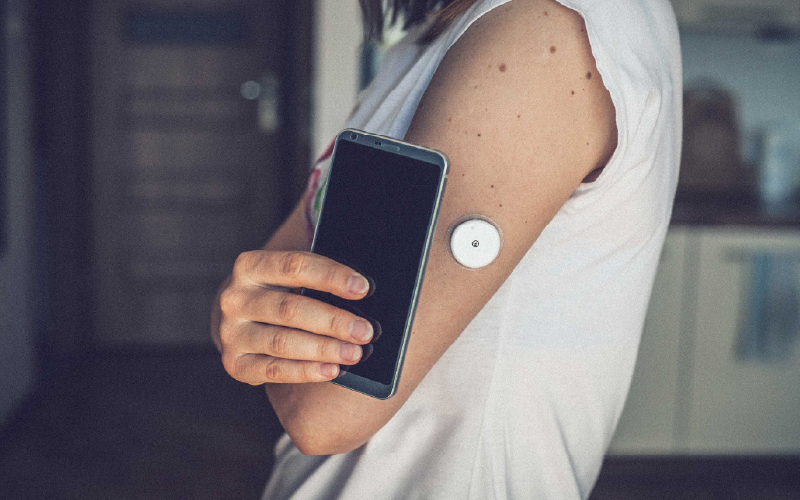Call SICE-MPr/2023/02 - Productive Innovation - Low Density
Individual productive investment operations in innovative activities, promoted by SMEs, in low-density territories.
Operation ALERT is exploring artificial intelligence to improve the diagnosis and management of type 2 diabetes.

AIBILI – Association for Biomedical Research and Innovation in Light and Image is developing Operation ALERT, an innovative project co-financed by COMPETE 2030 that promises to transform the monitoring of diabetic retinopathy (DR) and the assessment of cardiovascular disease risk in people with type 2 diabetes.
A silent problem with an impact on vision and the heart
Diabetic retinopathy is a common complication of diabetes and one of the leading causes of blindness in working-age adults. The biggest challenge is to identify early on those patients who may develop severe forms of the disease, such as proliferative retinopathy or macular oedema, which can lead to vision loss. In addition, people with type 2 diabetes have a much higher risk of cardiovascular disease, such as heart attack or stroke.
“Diabetic retinopathy (DR) is a common complication of diabetes and one of the leading causes of vision loss. The ALERT project (Analysis of the progression of diabetic retinopathy to identify risks and the need for treatment) aims to study the impact of using wide-field imaging and develop artificial intelligence (AI) models to identify the stage of DR and predict the risk of disease progression, as well as associated cardiovascular complications,” explains Luís Mendes, head of operations and Research Coordinator at AIBILI.
Cutting-edge technology to see further
ALERT invests in advanced imaging techniques, such as ultra-widefield retinal imaging, which captures up to 200 degrees of the eye in a single image. These technologies enable the detection of lesions in the periphery of the retina that are often not visible with conventional methods and that may indicate a higher risk of disease progression.
In addition to imaging, the project is developing artificial intelligence models that cross-reference ophthalmological information with clinical, demographic and systemic data to predict not only the progression of DR but also cardiovascular risk.
‘Patients with type 2 diabetes are at increased risk of developing coronary heart disease and ischaemic stroke. Several studies point to a relationship between the state of the retinal microvasculature and cardiovascular disease, with the retina being a privileged window for non-invasive observation of the microvascular system,’ points out Luís Mendes.
A database that supports the future of research
To support the development of these AI models, a database will be created with information from more than 700 patients, collected at different points in time and built according to FAIR (Findable, Accessible, Interoperable, Reusable) principles. This database will integrate images, clinical data and medical assessment results, and will be available for future research.
“The ALERT database will be created as part of the project, with information from more than 700 patients. The use of real-world data will enable the development of more robust AI models, contributing to their proper characterisation and validation. This database will be built according to FAIR (Findable, Accessible, Interoperable, Reusable) principles, with the aim of being reused by other research groups in the future. In the long term, the project aims to contribute to a significant improvement in diabetes management through the integration of AI models into clinical practice,” emphasises Luís Mendes.
A new era for personalised medicine
With ALERT, AIBILI aims to promote more personalised and predictive clinical practice, anticipating vision and cardiovascular health risks and contributing to more effective patient monitoring.
Luís Mendes emphasises: “The ALERT project, which focuses on the study of diabetic retinopathy through wide-field imaging and the development of AI models, is supported by COMPETE 2030, a programme that plays an essential role in achieving its objectives. This support will enable the development of a database of more than 700 patients, built according to FAIR principles. From this database, the aim is to create artificial intelligence models capable of predicting the progression of retinopathy and cardiovascular risk factors, with the potential to contribute to more personalised and predictive clinical practice. By promoting innovation, digital transition in healthcare and positive social impact, COMPETE 2030 contributes to more sustainable and intelligent solutions in the management of type 2 diabetes, strengthening the competitiveness of national research and the commitment to the digital future of healthcare in Portugal.
With this operation, AIBILI reinforces its role in biomedical research excellence, putting artificial intelligence at the service of more preventive, personalised and efficient healthcare.
Links
AIBILI | Website
04 February 2026
Individual productive investment operations in innovative activities, promoted by SMEs, in low-density territories.